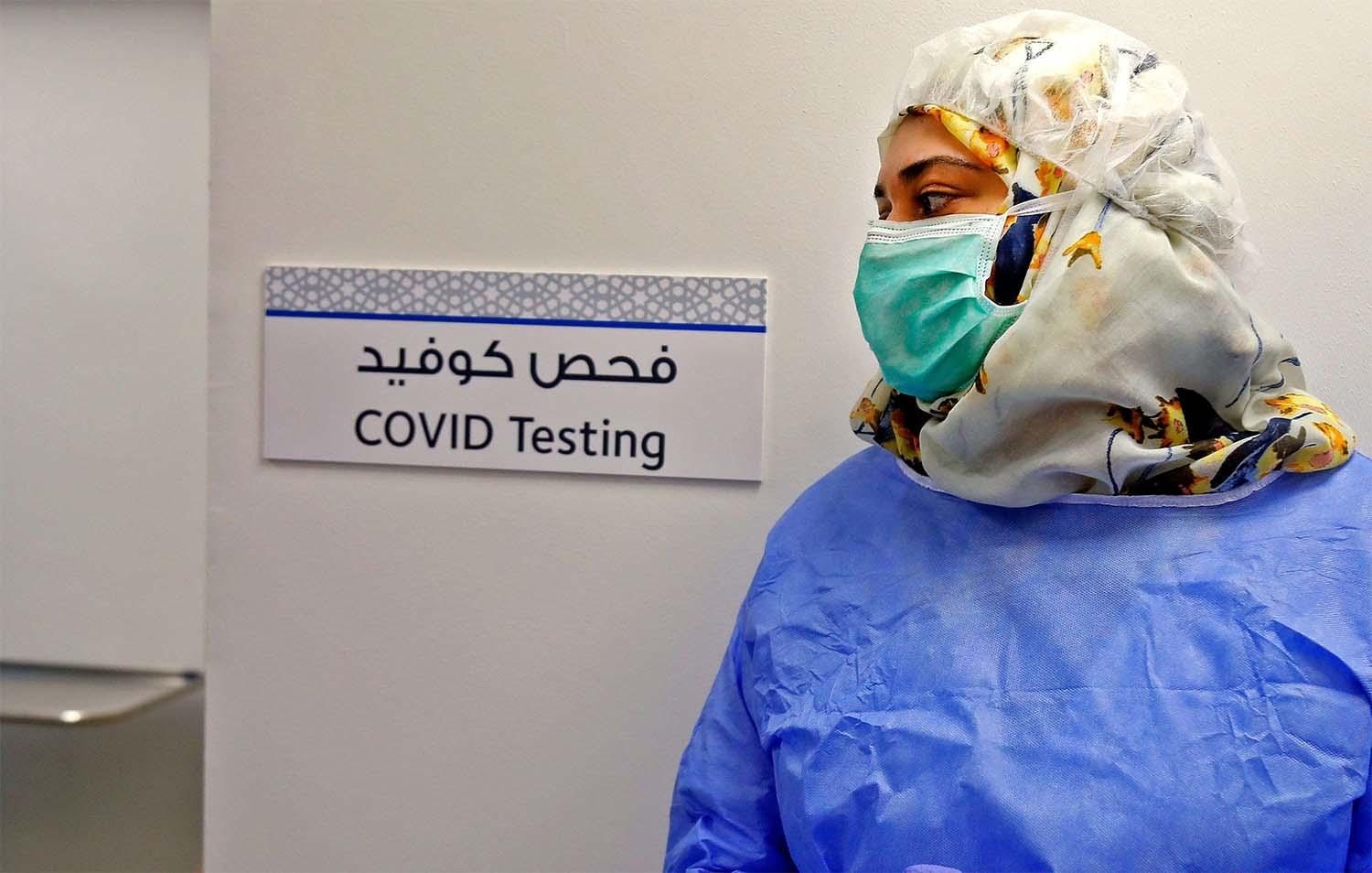The Supreme Committee for Crisis Management announced new health and safety restrictions during a press conference on February 3. Here’s everything COVID related that’s happened since 2021 kicked off.
The press conference held by the Supreme Committee for Crisis Management on February 4 highlighted the four levels of the reimposition plan that will be applied in order to battle the latest surge of COVID-19 cases in Qatar. On the day of the conference, the country registered 396 new cases of the virus.
The levels are:
- Level 1: Restrictions on high-risk activities
- Level 2: For moderate to high-risk activities if the infection prevalence has not decreased
- Level 3: Further restrictions
- Level 4: Complete lockdown
It was decided to apply most of the restrictions from the second level of the plan starting February 4.
This means restricting the number of those in the workplace, closing children’s playgrounds and indoor amusement parks, limiting the capacity of indoor sports and fitness areas such as gyms, and banning indoor weddings (unless held at home) while restricting the number of attendees of at home weddings, both indoor and outdoor, to 10 and 15 respectively.
A source at Hamad Medical Corporation has told Doha News some 88% of new cases recorded in the last three weeks have been among Qatari citizens and white collar professionals.
With the more drastic restrictions being imposed on activities that the aforementioned groups participate most in, it is hoped that the rise in numbers will begin to subdue.
Head of Infectious Diseases at Hamad Medical Corporation Dr. Abdul Latif Al-Khal said that the size of the second wave hitting Qatar is not clear, but taking precautionary decisions and community cooperation will curb the intensity of this wave.
But some people in Qatar don’t believe the precautions go far enough, with many citizens and residents taking to social media to voice their concerns. One Twitter user wrote “why is no one able to say that schools are a big reason for the spread that’s happened recently?”
https://twitter.com/ijhur/status/1357029706839785479
Another tweet read “the solution is to tighten supervision and penalties, and “apply precautionary measures” to schools, business centers, commercial complexes and tourist places such as the Pearl, Katara, Al Hazm, Msheireb.”
الإغلاق والحظر التام أو الجزئي ليس حلاً!
الحل في تشديد الرقابة والعقوبات "تطبيق الإجراءات الاحترازية" على المدارس والدوامات والمجمعات التجارية والأماكن السياحية "اللؤلؤة، كتارا، الحزم، مشيرب"!
تقليل الأعداد في المناسبات الاجتماعية كالأعراس، وإلغاء المسابقات، المهرجانات والمعارض!— مــريــم آل ثــانــي (@ALThani_M) February 3, 2021
Since the COVID vaccine became available at the end of 2020, Qatar has expanded and continued to employ its campaign in order to successfully fight the pandemic and prevent the spread of the disease.
Prior to the new year, Qatar received its first batch of Pfizer-BioNTech vaccines. The first group to receive the shots were aged 70 or over, people with chronic illnesses, and frontline workers.
On January 1st, Qatar recorded 208 new cases while at the end of the month, 351 new daily cases were confirmed. The peak was on January 30, with 363 new cases on that day.
The last fatality recorded was on February 1, bringing the number to 249. Qatar has had a coronavirus fatality rate of 0.14%, one of the lowest in the world.
At the start of the year, authorities confirmed 2,241 active cases. This has since increased by 135% to 5,281 active cases. The increase in number triggered concern for a potential second wave in the country despite repeated assurances from some officials that this was not the case.
According to the Ministry of Public Health [MoPH], Qatar saw an 85% increase in COVID-19 cases being admitted to the hospital in January compared to December.
The Ministry of Interior has continued inspections through routinely booking those who fail to wear a face mask in mandatory places. However, there has also been a surge in the number of those booked for not wearing a mask.
Read also: Carnival suspended indefinitely amid rising COVID numbers in Qatar
This has caused a social media movement to appear, calling on the community to continue adhering to safety precautions, with particular emphasis on the wearing of masks.
Meanwhile, Head of Vaccination at MoPH Dr. Soha Al Bayat in a interview with Qatar Television, said the surge could be due to caution fatigue – a condition that suggests people may have become bored with wearing masks, complacent with adhering to social distancing, and taking sanitation measures such as frequent hand washing less seriously.
Dr. Bayat also said it could also be due to people violating home quarantine orders.
According to director of the Ministry of Interior’s (MoI) Public Relations Department Brigadier-General Abdullah Khalifa al-Muftah, over 4,000 people violated health and safety measures in January alone.
With numbers surging, the way of life in Qatar has had to continually adapt and fluctuate.
In the beginning of the year, Qatar Airways provided and extended a travel bubble to the Maldives, allowing people to travel without needing to quarantine. By the end of January, the surge had caused Qatar Airways to suspend long awaited post-blockade flight bookings to the UAE, as well as other countries.
In the education sector, school attendance has also taken a hit, with the Minister of Education and Higher Education Dr. Mohamed bin Abdul Wahed Ali al-Hammadi saying that 50% attendance rate will be the maximum, and is unlikely to increase because of the recent surge in cases.
The virus is constantly mutating as new strains appear, with two detected in the UK and South Africa and it is very likely that the new strains will arrive in Qatar. The press conference highlighted that because of this, following the precautionary measures is more important now than ever.
Follow Doha News on Twitter, Instagram, Facebook and Youtube







